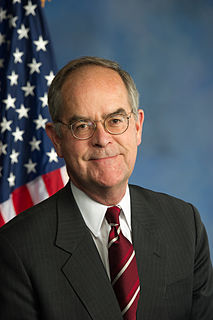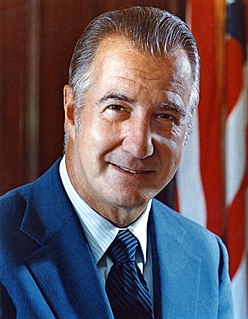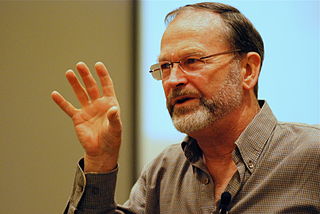Top 564 Inflation Quotes & Sayings - Page 8
Explore popular Inflation quotes.
Last updated on April 16, 2025.
I think the inflation prospects for the U.S. over the next five or six, seven years, are quite serious. You cannot have a bumper crop in apples without the value or the price of each apple falling. The Fed has had the largest increase in the monetary base in the history of the U.S., from colonial times to the present, times ten.
This is going to sound crazy, especially in America where there is a total inflation of the word "love," but in a sense you have to love the people in front of the camera. There has to be trust between the one who is behind the camera and the people on the other side, so that they can relax. They have to feel they are safe, and that way they don't have to pretend just because they are scared.
I'm just interested in science, and I try to keep track of what's going on and get my head around it - inflation, the multiverse, whatever. It's very hard for me because I don't have a scientific background, and I wasn't any good at science at school, but all of that stuff I just find incredibly attractive and fascinating.
The Republican Party has consistently opposed Obamacare (as costing more), stimulus spending (as increasing inflation), etc., none of which has happened in spite of seven years of their warnings. Their main problem is that they don't have the character to admit that they are wrong. They don't have enough character to rethink their deeply held assumptions.
The Fed should make a clear commitment to stable money to reduce the swings in interest rates and inflation. Instead, it champions and flaunts unstable money. This encourages momentum trading and the growth of derivatives. Meanwhile, layers of financial regulation make Washington bigger and more powerful but don't fix the underlying problems.
Inflation is really like drugging the baby universe with speed. The supercool union of the hitherto unfriendly gods was blessed by amphetamine, and this made the universe inflate rather than just expand. The early orgy of expansion in the universe comes to an abrupt end as soon as the supercooled particle stuff finally freezes.
Following Greece's defeat at the hands of Turkey in 1897, Greece's fiscal house was entrusted to a Control Commission. During the 20th century, the drachma was one of the world's worst currencies. It recorded the world's sixth highest hyperinflation. In October 1944, Greece's monthly inflation rate hit 13,800%.
The Fed should make a clear commitment to stable money to reduce the swings in interest rates and inflation. Instead, it champions and flaunts unstable money. This encourages momentum trading and the growth of derivatives. Meanwhile, layers of financial regulation make Washington bigger and more powerful but dont fix the underlying problems.
The reason inflation was brought down to manageable levels, by the time of Ronald Reagan's re-election, was directly attributable to Jimmy Carter's very courageous act, hiring a Federal Reserve chair, with the charge to induce a recession. That recession was probably the reason he didn't win a second term.
Contrary to Piketty’s rentier hypothesis, I don’t see anyone on the [Forbes 400 list of the wealthiest Americans] whose ancestors bought a great parcel of land in 1780 and have been accumulating family wealth by collecting rents ever since. In America, that old money is long gone - through instability, inflation, taxes, philanthropy, and spending.
Central bankers always try to avoid their last big mistake. So every time there's the threat of a contraction in the economy, they'll over stimulate the economy, by printing too much money. The result will be a rising roller coaster of inflation, with each high and low being higher than the preceding one.
I believe Sharia law, however it comes, is the future for America. I believe, one day, that the people will adopt it anyway. A lot of issues we're looking at now are already enshrined within the Sharia. For instance, the gold standard for when dealing with inflation and a lack of confidence with the stocks and shares, which has been prevalent for the last many decades. All of that is prohibited in Islam.
For those of you who may be unaware, [Michael] Boskin is the economist/weasel/fraud who helped to officially distort the CPI, making it more or less worthless as a measure of inflation. The Boskin Commission... was an act of cowardice. Rather than man up and say fix this, its broken, we can't afford it.
Militarism is the most energy-intensive, entropic activity of humans, since it converts stored energy and materials directly into waste and destruction without any useful intervening fulfillment of basic human needs. Ironically, the net effect of military, as opposed to civilian, expenditures is to increase unemployment and inflation.
Inflation is not caused by the actions of private citizens, but by the government: by an artificial expansion of the money supply required to support deficit spending. No private embezzlers or bank robbers in history have ever plundered people's savings on a scale comparable to the plunder perpetrated by the fiscal policies of statist governments.
For all your long-term investments, such as retirement accounts that you won't touch for at least ten years, you need a mix of stocks and bonds. Stocks offer the best shot at inflation-beating gains. But stocks don't always go up. That's where bonds come into play: They have less upside potential, but they also do not pack the same risk.
Similar questions were posed to Allende as to me. Allende was told that he blamed everything on a conspiracy, on the economic crisis, that he blamed the high inflation that sabotaged him on the United States, and that he was frequently accusing the little lambs of Nixon and Kissinger of a coup. But everything became known later.
During the Greenspan-Bernanke era, the Fed has embraced the view that stability in the economy and stability in prices are mutually consistent. As long as inflation remains at or below its target level, the Fed's modus operandi is to panic at the sight of real or perceived economic trouble and provide emergency relief.
The basic prescription for preventing deflation is therefore straightforward, at least in principle: Use monetary and fiscal policy as needed to support aggregate spending, in a manner as nearly consistent as possible with full utilization of economic resources and low and stable inflation. In other words, the best way to get out of trouble is not to get into it in the first place.
Ending inflation means freeing all Americans from the terror of runaway living costs. ... We have every right to dream heroic dreams. Those who say that we are in a time when there are no heroes just don't know where to look. ... Above all, we must realize that no arsenal, or no weapon in the arsenals of the world, is so formidable as the will and moral courage of free men and women.
The underconsumptionist of 1819 believed that consumption would be stimulated by tariffs, while the underconsumptionist of a later day urged monetary expansion as the remedy. On the other hand, the remedy proposed for the shortage of money capital was monetary inflation in 1819, encouragement of savings and thrift in the 1930s.
Yes, 4% is the government-mandated target to the MPC. The plus/minus 2 percentage-point upper and lower bands are the tolerance levels specified by the government. If we breach those for three consecutive quarters, we need to inform the government of why that happened and what we propose to do to bring inflation within the two bands.
And I don't see that popular measures, self-abnegation and democracy have done anything for Man but push him further into the mud. Currently, popularity endorses degraded novels, self-abnegation has filled the Southeast Asian jungles with stone idols and corpses, and democracy has given us inflation and income tax.
Government intervention in the economy - through taxes, regulation and, most importantly, currency inflation - causes distortions and misallocations of capital that must eventually be unwound. The distortions degrade the general standard of living, and the economy goes into a recession (call that an incomplete cleansing). Or it goes into a depression - wherein the entire sickly structure comes unglued.
What we define as a bubble is any kind of debt-fueled asset inflation where the cash flow generated by the asset itself - a rental property, office building, condo - does not cover the debt incurred to buy the asset. So you depend on a greater fool, if you will, to come in and buy at a higher price.
Inflation is probably the most important single factor in that vicious circle wherein one kind of government action makes more and more government control necessary. For this reason all those who wish to stop the drift toward increasing government control should concentrate their effort on monetary policy.
In the 40 years I've been working as an economist and investor, I have never seen such a disconnect between the asset market and the economic reality... Asset markets are in the sky, and the economy of the ordinary people is in the dumps, where their real incomes adjusted for inflation are going down and asset markets are going up.
I think the country could be spared a lot of agony and the government could worry about inflation and a lot of other problems if [Nixon would] go on and resign. [There is] no question that an admission of making false statements to government officials and interfering with the FBI and the CIA is an impeachable offense.
The future path of the federal funds rate is necessarily uncertain because economic activity and inflation will likely evolve in unexpected ways. For example, no one can be certain about the pace at which economic headwinds will fade. More generally, the economy will inevitably be buffeted by shocks that cannot be foreseen.
Repeal the entire Banking Act of 1933, and Austrian School economists will cheer, especially if the current system were replaced by a 100%-reserve competitive banking with no central bank. That banking reform would give us a sound money system, meaning no more business cycle, bailouts, or inflation.
The gold standard did not collapse. Governments abolished it in order to pave the way for inflation. The whole grim apparatus of oppression and coercion, policemen, customs guards, penal courts, prisons, in some countries even executioners, had to be put into action in order to destroy the gold standard.


















































